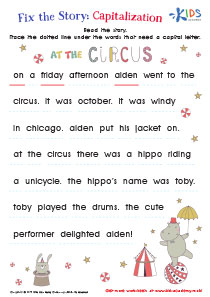Vocabulary Building Grade 2 Grammar Worksheets
6 filtered results
-
From - To
Enhance your child's language skills with our Vocabulary Building Grade 2 Grammar Worksheets at Kids Academy. These engaging and educational worksheets are expertly designed to improve your second grader’s vocabulary, understanding of context, and ability to use new words effectively. Each worksheet focuses on progressively building your child's grammar foundation, ensuring they grasp essential concepts such as synonyms, antonyms, and homophones. Printable and easy to use, these resources will make learning fun and interactive, fostering a love for reading and writing. Unlock your child’s potential and watch their confidence soar with our comprehensive vocabulary-building worksheets!
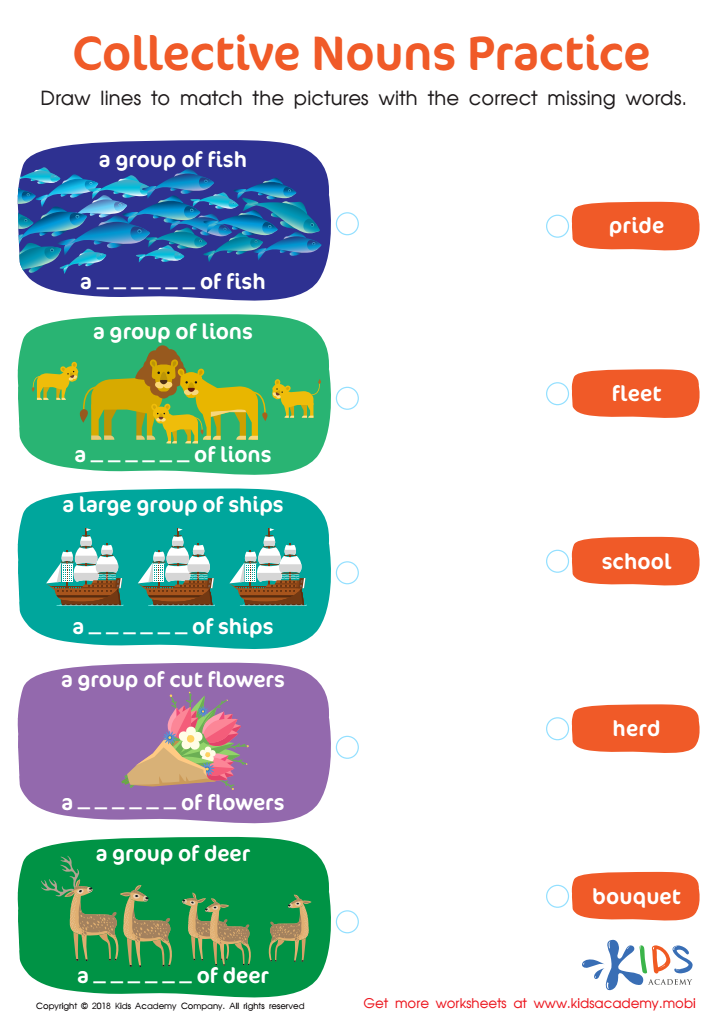

Collective Nouns Practice Worksheet
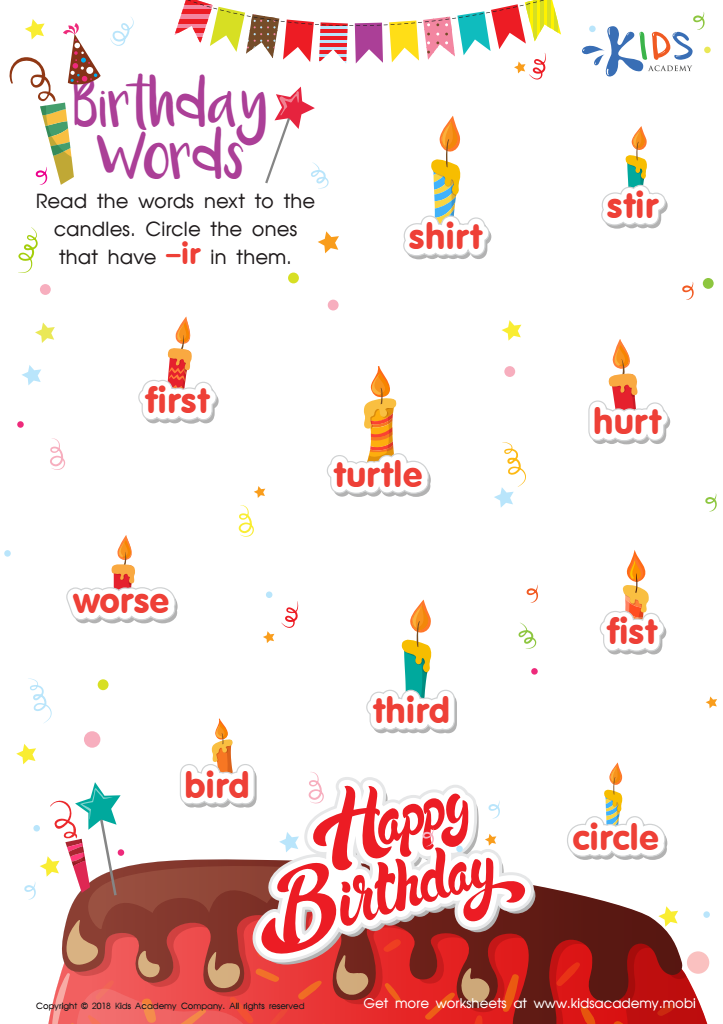

Birthday Words Worksheet
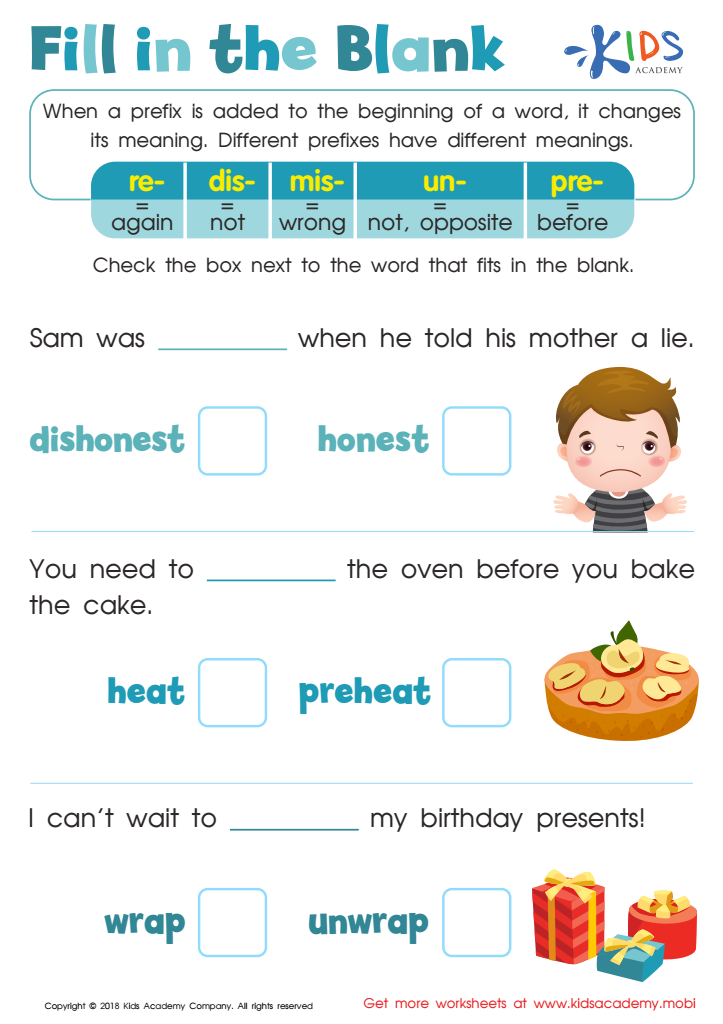

Reading: Fill in the Blank Worksheet
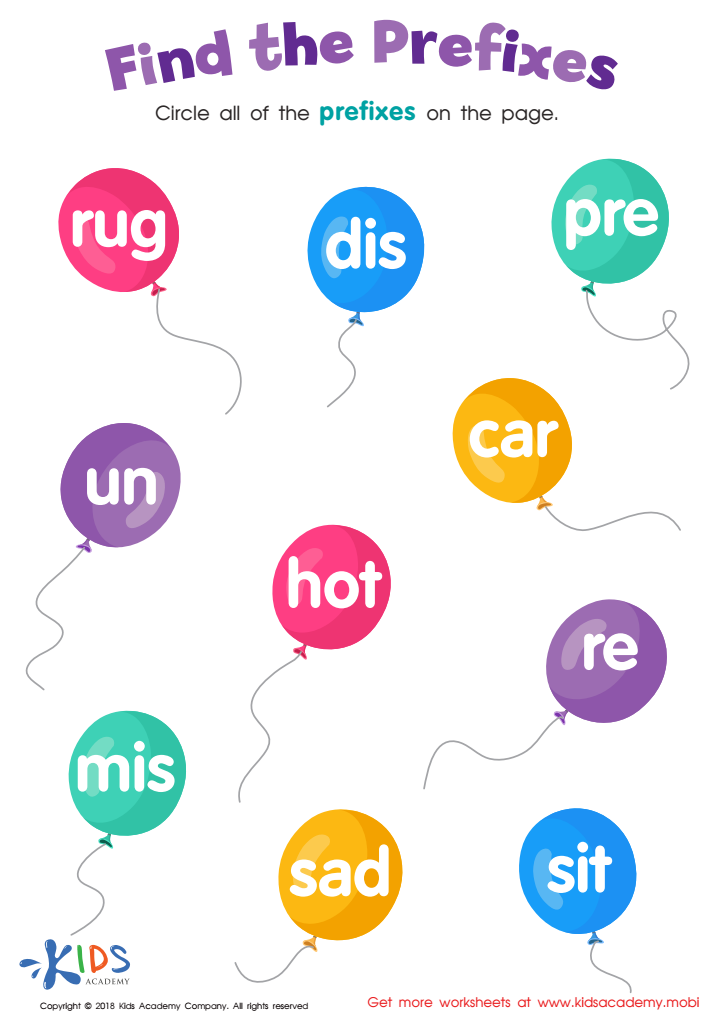

Reading: Find the Prefixes Worksheet
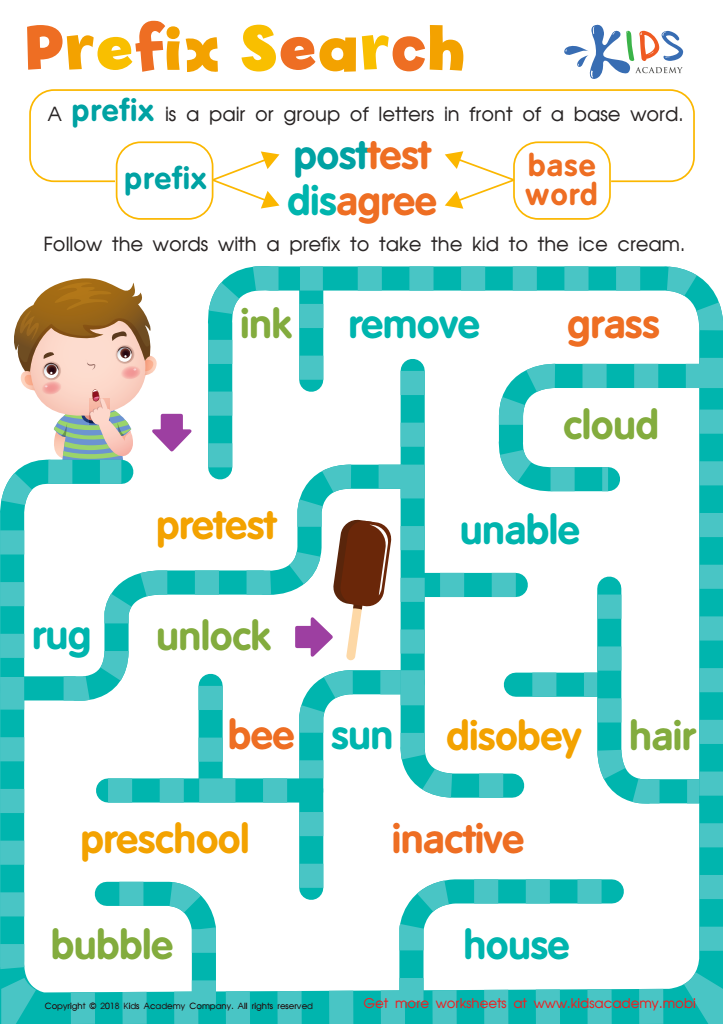

Reading: Prefix Search Worksheet
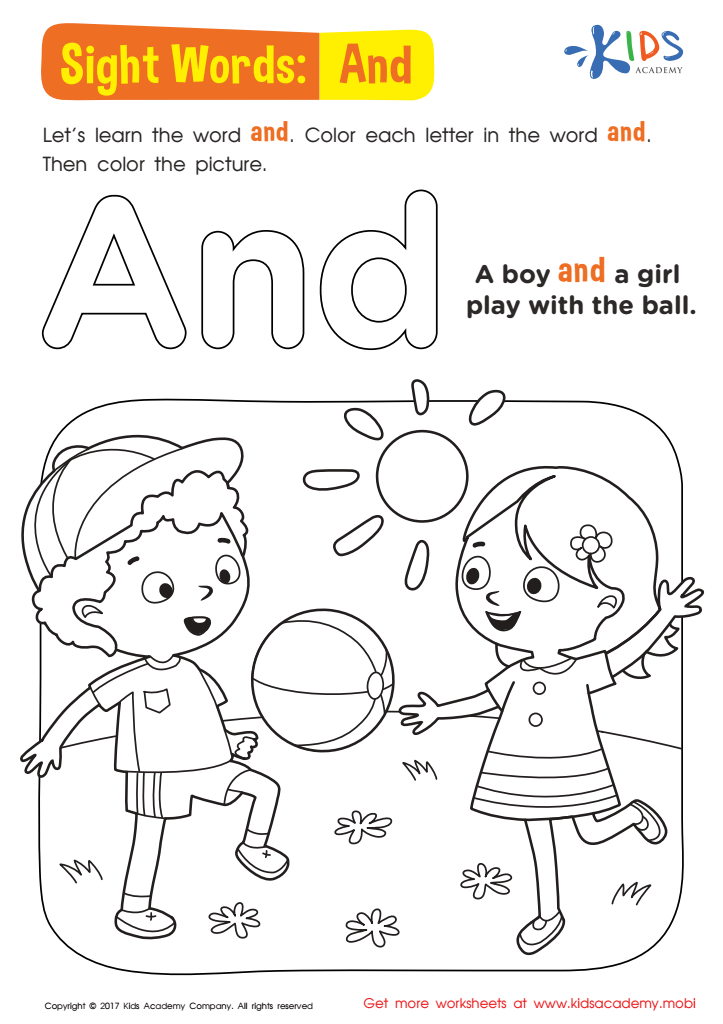

And Worksheet Sight Words Worksheet
Vocabulary building in Grade 2 is crucial for children’s academic and personal development. At this stage, children start reading more independently and encountering a wider range of words. A robust vocabulary enhances their reading comprehension skills, making it easier for them to understand and enjoy what they read. This foundational skill contributes to improved performance across all subjects as they are better able to follow lessons and instructions.
Grammar, on the other hand, is the structure that supports effective communication. Proper grammar helps children convey their thoughts clearly and listen more effectively to others. Second graders are at an ideal age to grasp fundamental grammar concepts like sentence structure, punctuation, and proper tense usage. These skills are imperative not only for writing but also for speaking.
Moreover, an extensive vocabulary combined with strong grammar skills enhances overall cognitive development. It heightens critical thinking and reasoning abilities, supports emotional intelligence by providing the words needed to express feelings, and fosters social skills by aiding more understandable and detailed communication.
Parents and teachers should prioritize vocabulary and grammar instruction because the development of these skills empowers children with the tools they need for lifelong learning and successful interpersonal interactions. They lay down the foundation for efficacious communication and complex thinking in future academic endeavors.

 Assign to My Students
Assign to My Students











